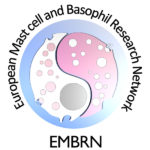Comparison of human and mouse basophils
Basophils from both human and mouse are effector cells of allergic inflammation. In the last few years it was demonstrated that basophils own additional attributes that enable them to play multifaceted roles in immunoregulation. Namely, it has been shown that basophils initiate Th2 differentiation1-5, regulate
